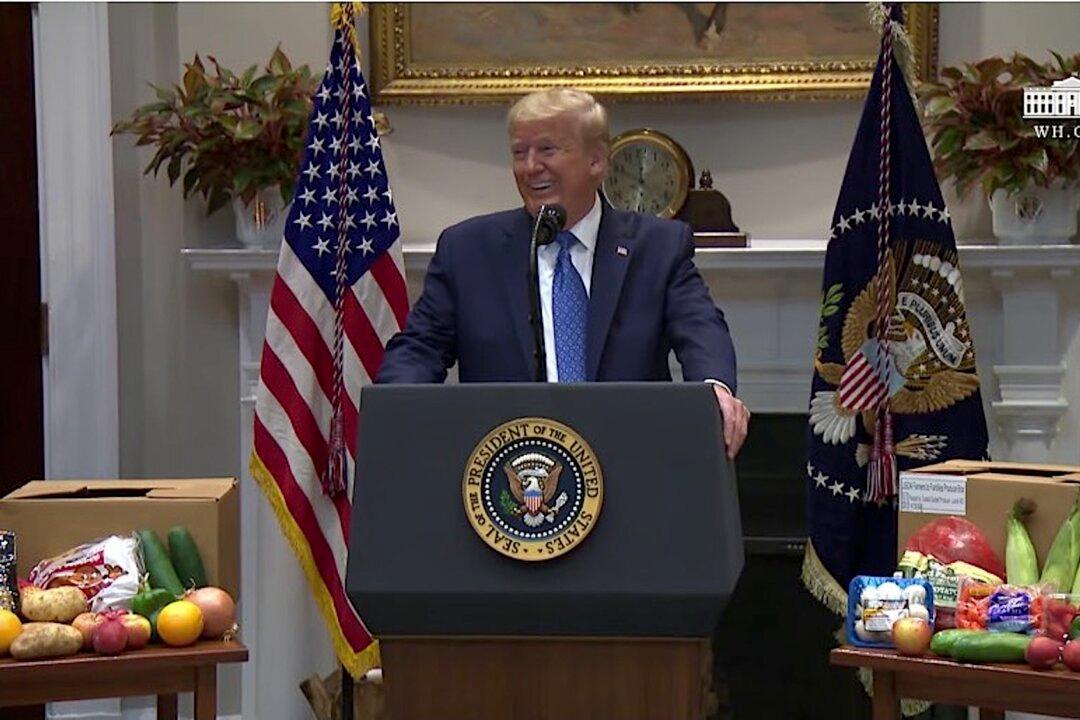President Donald Trump announced rules on Tuesday for a $19 billion pandemic relief package to farmers, who can start signing up next week for direct federal aid.
Speaking at a podium flanked by tables stacked with fruits and vegetables in the Roosevelt Room of the White House, Trump shared details of the U.S. Department of Agriculture (USDA) Coronavirus Food Assistance Program (CFAP), which includes $16 billion in aid directly to farmers and ranchers, and another $3 billion to buy food and distribute it to needy families under the Farmers to Families Food Box program.





